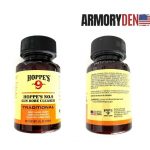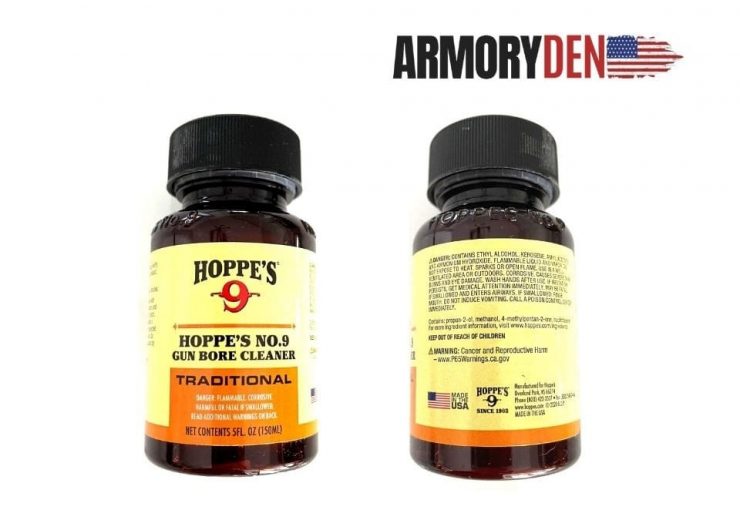Things to Avoid When Cleaning your Firearms
Cleaning your firearm is an essential part of firearm maintenance. It will ensure that your firearm works more efficiently, is safer, and lasts longer. However, when you don’t use the proper firearm cleaning solution, you might end up damaging your firearm. Many firearm owners try to save a few bucks using homemade concoctions to clean their firearms, which end up costing more. Various firearm cleaning solvents and oils are available, which are made for that specific purpose.
Firearm Cleaners vs. Firearm Oils
You need both firearm cleaning solutions and firearm oils when cleaning your firearms. A firearm cleaner is a chemical solution that eliminates built-up contaminants such as copper and carbon fouling in your firearm. Firearm cleaning solutions loosen copper and carbon built up in the firearm to come out easily. They also maintain your firearm’s appearance and value.
On the other hand, firearm oil is a petroleum-based lubricant with a high level of refinement. It lubricates your firearm and prevents corrosion and rust on its metal parts.
Think of a firearm cleaner like car wash and firearm oils like car wash wax. You eliminate the build up, then wax that bad boy until it is slick.
Using firearm cleaners and firearm oils to maintain your firearms is paramount for their proper functioning. If you only use firearm cleaning solutions, your firearm can be exposed to corrosion and rust damage. Firearms also have extremely high friction when used, so lubrication is necessary. Suppose you only lubricate your firearm and do not clean it using the right firearm cleaners; it will attract dirt and debris, building up and affecting its performance.
So what are the absolute don’ts when choosing the right firearm cleaning solution?
4 Things You Should Avoid When Cleaning Your Firearms
Here are four important things to avoid when cleaning your firearm:
1. Cooking Oil
Using cooking oil to clean your firearms is never a good idea. Firearms round up a lot of heat and pressure when in use. They also get a lot of carbon and copper debris on them. Cooking oil as a firearm cleaning solution will only attract more dirt and affect your firearm’s performance. Frequently using cooking oil will cause more build-up on your firearm and degrade it further.
As a lubricant, cooking oil isn’t designed to withstand the high pressure and friction on a firearm’s metal parts. Most vegetable oils have a smoking point of 375℉. They are also quite viscous compared to most firearm lubricants. Soon enough, your firearm will be left unprotected and susceptible to rust and corrosion.
Some cooking oils also polymerize and solidify, which could gum up inside your firearm. At this point, they can’t even lubricate or protect your firearm from corrosion.
2. Brake Fluid/Brake Cleaner
Many firearm owners mistake using brake fluid or brake cleaner as a firearm cleaning solution because it gets the job done quite well. But, what most don’t know is that there is a catch. Although brake cleaner is not detrimental to metal surfaces, it can affect stock finishes by removing oil. It also eats away at plastic parts and loosens painted decorations on your firearm.
If used once or twice, the damage might not be apparent. However, with long-term use, your firearm will be left without any lubrication, which exposes it to rust and corrosion. You, therefore, have to keep re-oiling your firearm to replace the oils that have been stripped off when cleaning using brake fluid.
Using brake fluid or brake cleaner to clean your firearms is dangerous to you and your firearm. When exposed to heat or certain chemicals, it can become flammable and even toxic to inhale.
Chlorine brake cleaners, for instance, produce phosgene gas as a byproduct when heated up. Even in small concentrations, phosgene gas can induce scarring in your nose and lungs, as well as cause your pancreas to shut down. Non-chlorinated brake cleaners don’t produce this gas. However, they can still be detrimental to your skin, and breathing them for too long can result in various adverse effects, including dizziness, chemical pneumonitis, and dermatitis, among others.
3. Dishwasher
Cleaning your firearm in a dishwasher is an absolute don’t. Firearms have many nooks and crevices. When water gets trapped in these spaces, it can cause corrosion and rust on your firearm. The metal elements of the action and the barrels will also rust if they are washed in hot water or with dishwashing soap. You risk warping the stock if you soak wooden stocks for an extended period to remove oil, dirt, grime, or cosmoline.
Dishwashing detergents have a high sodium content, which helps dishes dry faster; this expedites corrosion and rust on metal surfaces on a firearm.
When cleaning a firearm, it’s best to use firearm cleaning solutions that will slip into the cracks and crevices to remove the build-up in there effectively. A dishwasher doesn’t make that possible, so although your firearm is clean outside, inside, the carbon and copper fouling is still present.
4. Gasoline/ Kerosene
You should never use any flammable product as a firearm cleaning solution.
Gasoline and kerosene are two flammable and dangerous substances that should not be used to clean firearms: gasoline and kerosene, harm firearm bluing and other metal finishes. The use of gasoline or kerosene to clean firearm stocks can destroy the stock finish if painted or lacquered.
Gasoline and kerosene can settle in the cracks of your firearm and cause a fire hazard when the firearm is fired. In the worst-case scenario, this can burn your hand terribly.
Armory Den’s gun cleaning solutions are designed for cleaning firearms and are available at affordable prices. You want to use these products to ensure your firearm is clean and safe for use at all times.
It is not enough to have the correct firearm cleaning solutions. Using premium Armory Den solvent trap kits will ensure you do the job correctly and keep your firearm in top shape.
Notice: Please be advised that this article is for information purposes only and Armory Den, Inc., Armory Den, and/or Armoryden.com, does not accept liability for any negligence, injury, death or other personal or environmental consequences that occur from the sourced and unsourced information in this article.





